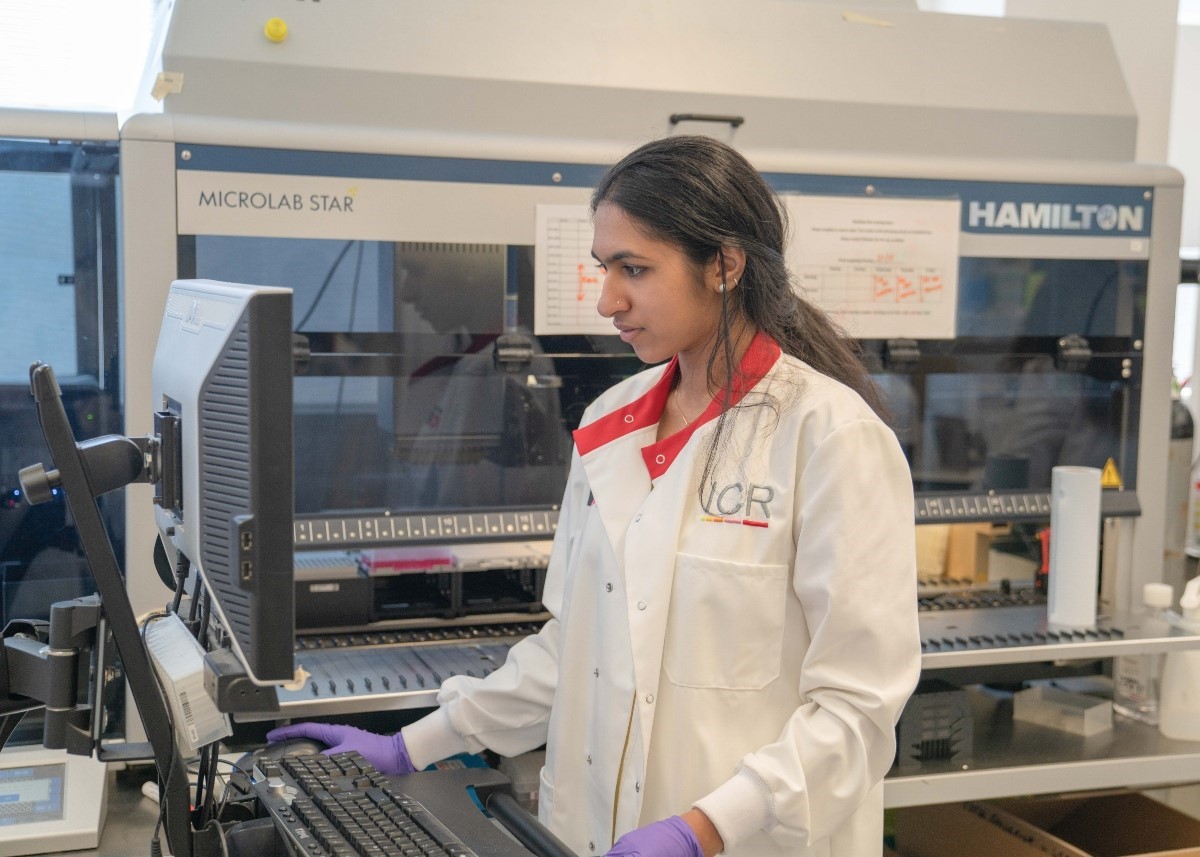How Breast Cancer Now Voices helped researchers in Wales understand the needs of women in breast cancer screening.
Made up of people whose lives have been changed by breast cancer, Breast Cancer Voices use their diverse experiences of breast cancer to shape and improve our work and change the future of breast cancer. These Voices help us accelerate research and provide vital support, in every way we can.

Breast cancer screening in Wales
Breast cancer screening is offered to women in Wales between the ages of 50 and 70 to find breast cancers early. It uses an X-ray test called a mammogram that can spot cancers when they are too small to see or feel.
The sooner breast cancer is diagnosed, the more effective treatment is likely to be.
Research, commissioned by Newport West Neighbourhood Care Network and supported by Breast Cancer Now, wanted to understand the needs of women who attend breast cancer screening.
Dr Juping Yu and colleagues, from the University of South Wales, recruited 37 participants through a variety of groups and organisations, including Breast Cancer Voices, to find out the main reasons why women in Newport and Newport West miss their breast screening appointment.
What would help you to go for breast screening?
The women, who were of White, Pakistani, Indian, Arab, Bangladeshi, Black and Mixed ethnic groups were asked what would help them to attend breast screening appointments. Their answers fell into the following seven categories:
- Trusting I will be respected
- Reassurance about my experience
- Accessibility and convenience
- Practical support
- Addressing cultural diversity
- Information tailored to individual needs
- Raising awareness and understanding of breast screening
They were also asked to rank their answers according to their importance and how easy it is to get that support.
Need for diversity and inclusivity
The researchers found that the importance of different types of support women needed varied based on their ethnicity, language, disability and whether they had missed breast cancer screening appointments.
Women who identified themselves as non-White, did not speak English, or had missed breast screening scored these statements higher on importance, but lower on how easy it was to access across all seven themes.
There were also varied responses between women who reported a disability and those that did not. Women who reported a disability or long-term health condition rated the statements ‘Trusting that I will be respected’ and ‘Practical support’ higher on importance, alongside ‘Reassurance about my experience’ and ‘Accessibility and convenience’.
That said, women who reported a disability also indicated that all these categories of support were more difficult to accesss for them, with ‘practical support’ rated particularly low.
Future recommendations
These findings highlight the importance that women feel respected, and are provided adequate support before, during and after their screening appointment. It also highlights the need for indiviualised support, especially for disabled women and those who do not speak or read English.
The researchers hope that these findings can help to develop ways to support women in Newport, so that they feel empowered and comfortable when attending their breast cancer screening. It also helps provide helpful information when understanding varied needs and inequalities for breast cancer screening uptake in other areas of the country.
If you have an experience you would like to share, you could help others who may feel alone. Find out about opportunities to use your voice by joining our Breast Cancer Voices community. Researchers need you for your voice and experience, so be sure to check out opportunities to participate.